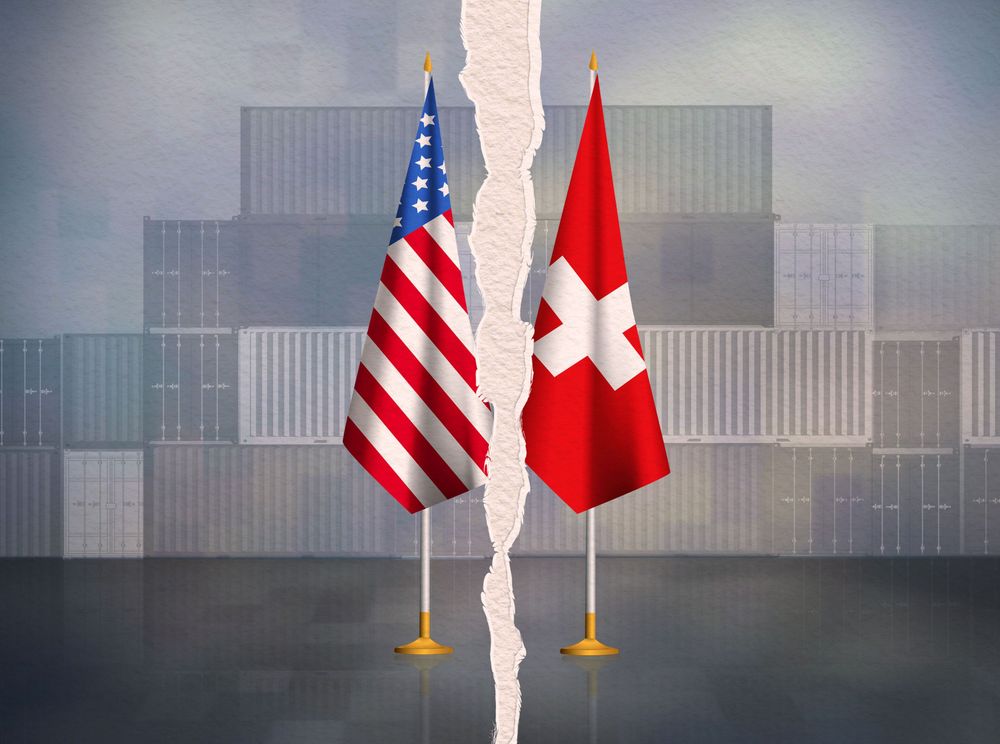Source: Bloomberg, smzh ag – As of April 1, 2025
Several deals concluded, but how reliable are they?
Although Trump’s new tariff regime provides a certain level of planning security for many countries and companies, uncertainty remains substantial. In the coming weeks, it is expected that the US President will announce additional tariffs on imports of pharmaceuticals, semiconductors, strategically important minerals, and other key industrial goods. President Trump’s behavior suggests that he apparently regards these measures as part of an ongoing “reality show,” making further “deals” or additional tariff increases very likely. Furthermore, the legal basis for these tariffs is still under review by US courts, which raises doubts about their durability and enforceability.
What’s next for Switzerland?
The economic impact will depend on many factors that simply cannot be predicted at this point. On the one hand, there is the question of how long these tariffs will actually remain in place, since, based on prior experience, many countries have subsequently been able to secure better agreements. There is therefore still hope in Switzerland, and diplomatic efforts will likely remain in full swing. In addition, many key sectors – such as pharmaceuticals – are (for now) still exempt. However, there is no question that these tariffs will negatively affect the Swiss export industry and, by extension, the country’s broader economic development. Depending on their duration and scope, they could even cause Switzerland to slip into a technical recession (two consecutive quarters of negative GDP growth), although a deep, prolonged economic downturn is by no means a foregone conclusion.
SNB: Negative interest rates more likely, but only limited relief for the economy
The prevailing assessment is that the introduction of negative interest rates by the Swiss National Bank would primarily influence the exchange rate, while the overall relief effect on the economy would remain limited. Spotlight is now on the USD/CHF exchange rate. In principle, a weakening Swiss economy should weaken the franc (and thus reduce the need for further rate cuts). However, heightened global risk aversion could reinforce the franc’s status as a safe haven, partially offsetting the downward pressure.
What does this mean for Swiss investors?
Hasty reactions in the face of an unclear situation can jeopardize long-term investment objectives. As we have repeatedly emphasized throughout the year, we continue to recommend adhering to a carefully considered investment strategy based on diversification and tailored to individual financial goals. Provided these conditions are met, any market corrections may present attractive buying opportunities – particularly for optimizing the average purchase prices of existing positions with a long-term focus.
Reassessing Swiss equities in a technology-driven market environment
Regardless of the ultimate outcome of US tariff policies, it is advisable to strategically review allocations to Swiss equities. Swiss stocks recorded a strong start to 2025; however, the relatively low weighting in structural growth segments such as information technology has weighed on their relative performance over the past three months. Although Swiss equities offer a unique combination of stability and solid growth potential, the ongoing technology-driven rally – especially in the field of artificial intelligence (AI) – suggests that the Swiss market could continue to underperform globally in the short term.
Even though Swiss equities remain a cornerstone in a CHF-based portfolio, their strategic role should be reassessed. In addition to increased international diversification, targeted exposure to growth segments could enhance both performance and resilience. Moreover, in the current low-interest-rate environment, quality dividend stocks continue to stand out as attractive investment options for income-oriented investors.
Get further information and recommendations in our latest CIO publications.




